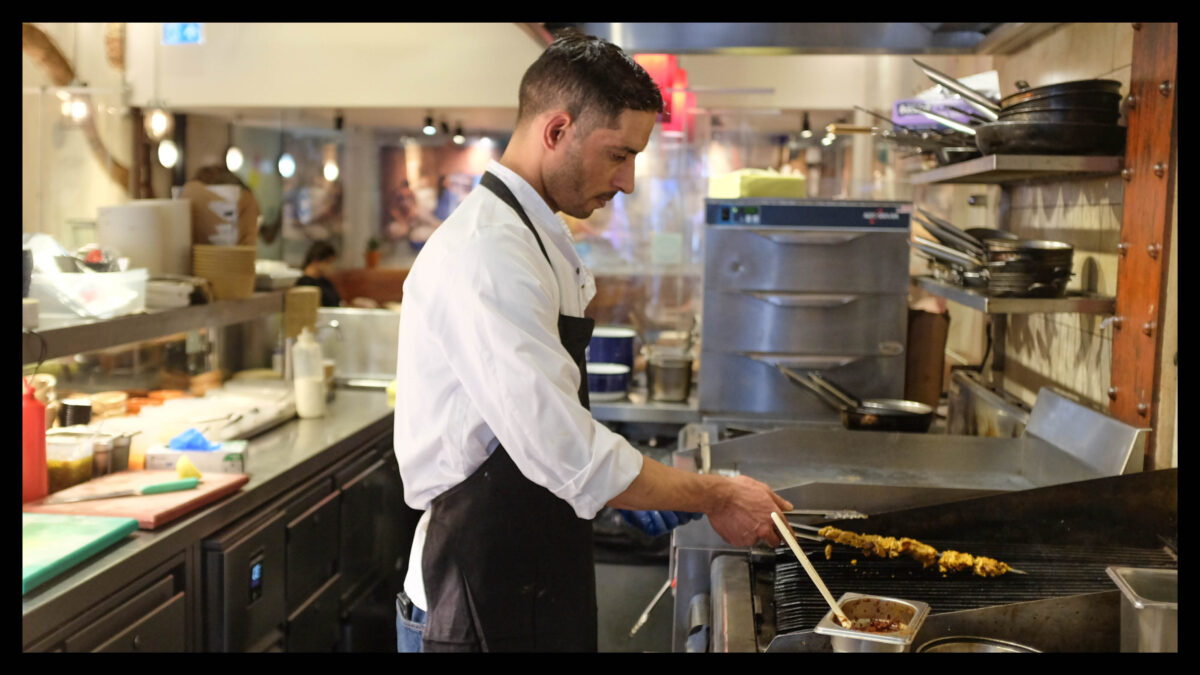All London roads lead to Egypt, but it’s only now that Clapham is seeing its first authentic, tasty and affordable Egyptian restaurant open to the public.
“It’s never made sense to me why in London, there’s nothing truly Egyptian besides the odd cafė,” says Charmaine Wasif, managing director at Cairo Kitchen – a new pop up restaurant on Clapham High Street, celebrating authentic Egyptian cuisine. “It’s essential. Physically on the map, the pyramids are the central point of the world!” she says.
For Charmaine and her family, the restaurant is an opportunity for their incredible knowledge of and love for their heritage to be finally put to use, and the family are by no means unfamiliar with London’s restaurant scene. Sami Wasif, Charmaine’s father and owner of the restaurant also helped in the creation of the successful nationwide sourdough pizza chain Franco Manca in Brixton back in 2008, working in the kitchen and learning the signature pizza recipe by heart. He was also the founder of the popular Clapham haunt Eco Pizzeria, just next door to Cairo Kitchen, which also specialises in sourdough pizza.
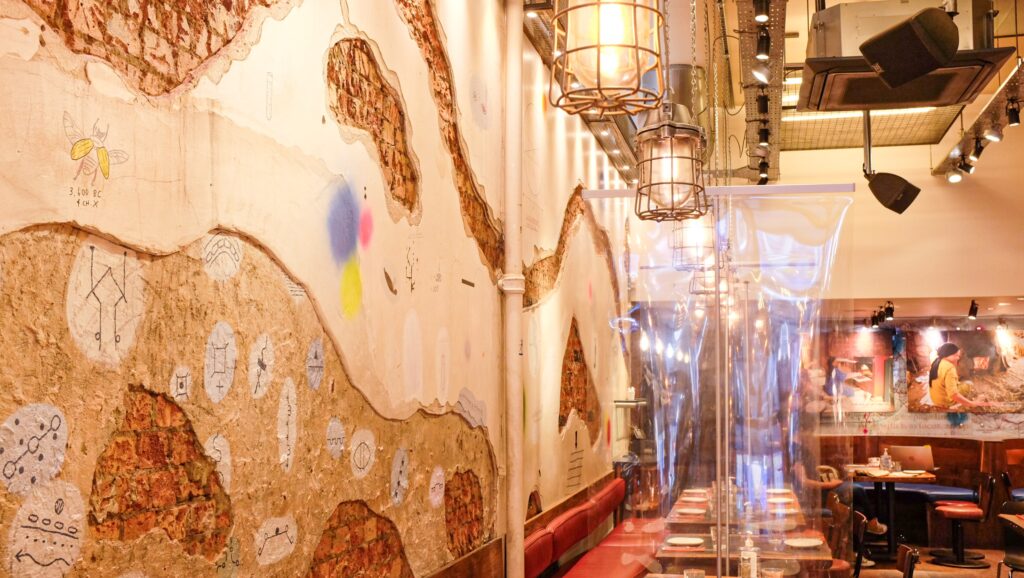
Cairo Kitchen is a family-run business at its core. “My mum is here every day, my dad’s here everyday cooking in the kitchen,” says Charmaine, pointing over at Sami and Laura who are working away at the front of the restaurant. “There’s my cousin who came over from Egypt about six years ago,” says Charmaine. “His sister followed and was instrumental in keeping Eco going during the lockdown. My dad’s best friend’s nephew also came to work in Eco and has been here for about 25 years.”
“Even better, around the site the Shard was built on was the same site where they built the temple that was originally dedicated to the Egyptian goddess Isis“
While the restaurant is only opening its doors now, Charmaine explains how it was inevitable for them to create a new space that would allow them to focus on their heritage sooner or later. “My passion for Egypt has been there since I was a kid,” she says. “I was always on the search for the deeper meaning of our family name and all sorts of things.” The deep interest in her family’s past is clear from her remarkable knowledge on historical connections between London and Egypt. “Once when I was at Glastonbury, I spoke with a woman in this crystal shop, who said, ‘Do you know I’ve just done a course and they told me that the River Thames was originally called the Isis river, because there was a cult dedicated to the goddess Isis from the Roman era.’ Even better, the site the Shard was built on was the same site where they built the temple that was originally dedicated to the Egyptian goddess Isis.”
The Wasif family had been in touch with their Egyptian roots long before the opening of Cairo Kitchen this year. “We had been going back to Egypt, looking at projects around breadmaking, as that’s our family’s main thing,” says Charmaine. “We’re deeply into sourdough and natural fermentation, and Egypt’s roots thousands of years ago was all about bread. In the temples they even found remnants of yeast and bacteria that they could use to create bread again!”
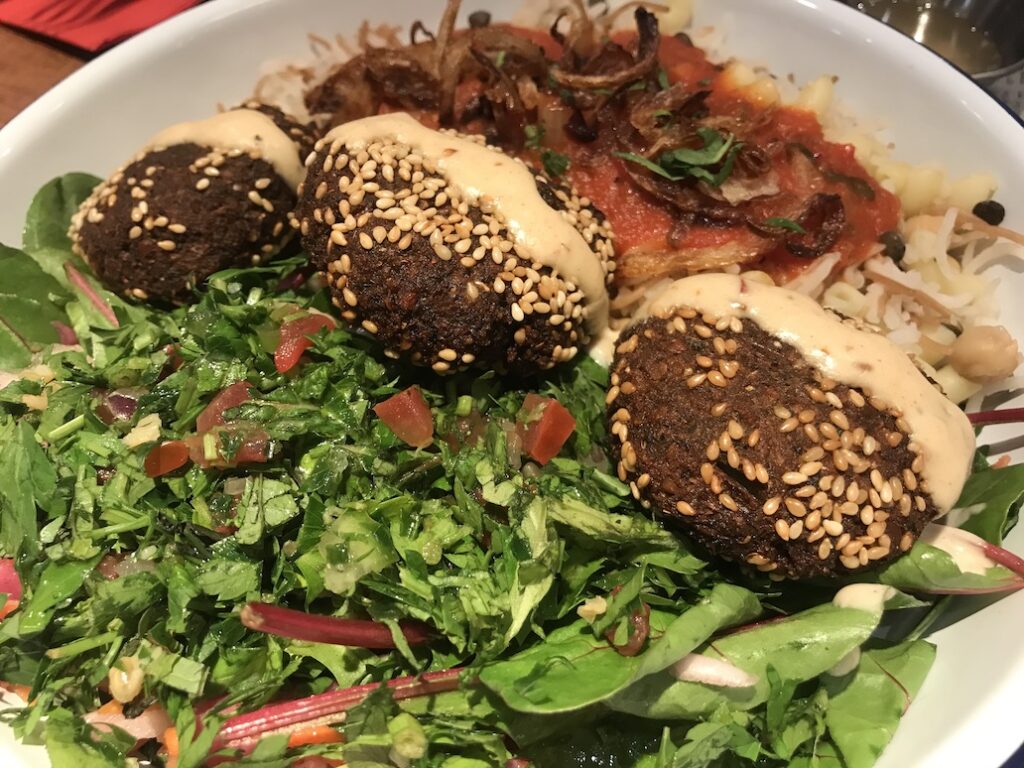
With bread being a signature dish that has been tried and tested in the family kitchen for over a decade now, it had to be one of the staple features on the Cairo Kitchen menu. One of their stellar dishes Charmaine says is the homemade baladi bread, a type of flatbread, with dukkah, a dip made from toasted nuts, seeds and a healthy dose of olive oil.
Cairo Kitchen first tested out some of their menu with a small stall outside the restaurant before they could open properly on 17 May this year. Some of the most popular dishes at the time, Charmaine recalls, were the meat skewers, halloumi wraps and t’ameya, which is similar to falafel, except instead of being made from chickpeas it is made with broad beans. It’s a food that is “inherent to the land,” she says. It’s also packed full of protein: “It’s 30% more nutritious than chickpeas in terms of the protein. It’s based on the core Egyptian diet. It’s not a rich culture, it’s based on the farm, and that’s the theme of the country.”
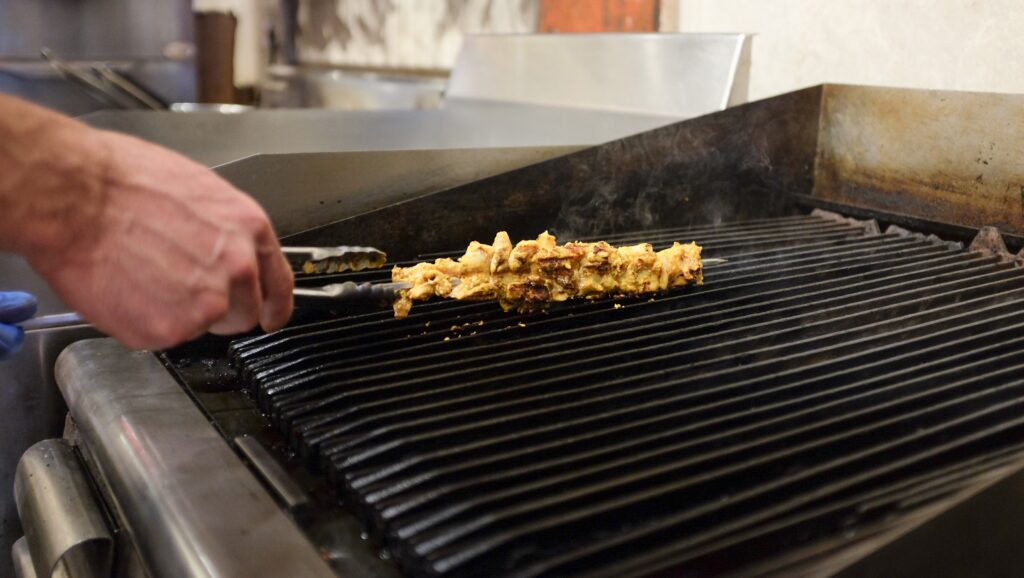
Besides the flavourful quality and nutritional value in the food, one interesting aspect of the restaurant is their low price point. A platter of baladi bread and a dip of your choice ranges between £2.95 and £3.95, while the koshari will cost you between £6.95 and 8.95, depending if you opt for the vegan, vegetarian, or meat options. Why did they decide to go low-cost? “It’s because of my dad’s culture. It’s all about the people for him and what they can afford,” says Charmaine. “We’d rather more people that spend less, than less people that spend more money,” she says. “We’re very much grounded and down to earth. We’ve been here a very long time and our formulas work.”
Opening an Egyptian restaurant post-lockdown is perfect timing according to Charmaine. “This city has taken a huge turn in the last few months in terms of the ability of Londoners to explore culture and their willingness to want to try things like new food. We have always been curious, but more so now than ever.” Their curiosity is a necessity in the current climate where restaurants are having to keep note of trending eating habits. With new stats showing a 40% increase in London-based vegans since last year, spaces need to be cooperative and adapt their menus. Luckily, a lot of Egpytian foods are vegan already, says Charmaine, such as the t’ameya, and the koshari, which is Egypt’s national dish.
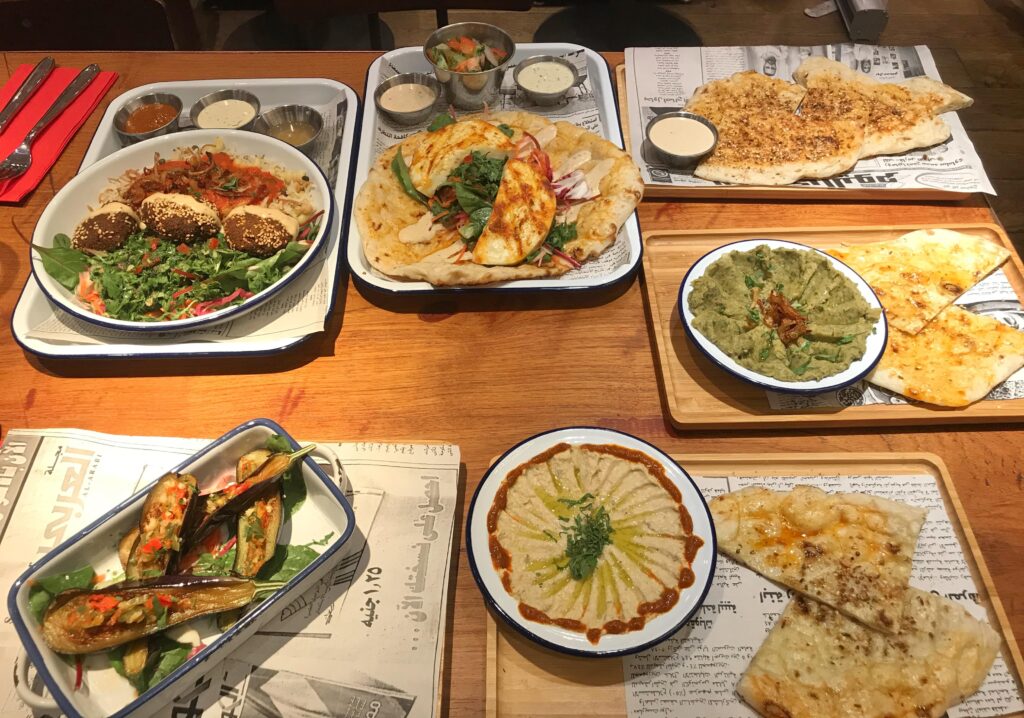
The menu was also adapted to suit Clapham’s predominantly young demographic, by including customisable dishes, which have been shown to attract millenials the most. “On the koshari, for example, which is only limited to pasta, rice, chickpeas, the sauce, and onions, we’ve added the option for adding your tomato on top, a chicken skewer or halloumi,” Charmaine says. They’ve also created a breakfast menu which includes more fusion inspired dishes: “We’re introducing an Anglo-Egyptian take on chutney spices. We’ll also have the full English, Egyptian style: with lamb sausage instead of pork sausage for example.”
Working together as a family isn’t always easy, “It’s the most stressful thing I’ve ever done in my life for this reason,” says Charmaine. “We also never stop talking about food!” But throughout multiple lockdowns, they’ve kept their other restaurants going, and managed to open Cairo Kitchen in the process. Charmaine says that working together, as well as their mutual passion for what they do is the key to their success: “We’re supporting wellbeing and growth, so the businesses can be protected from economic difficulties. We protect businesses, we look after each other. We’re a network.”
Cairo Kitchen is open Monday-Sunday from 08:00-22:00, and can be found at 160 Clapham High St, (a short walk from Clapham Common Underground and Clapham High Street Overground stations.)

